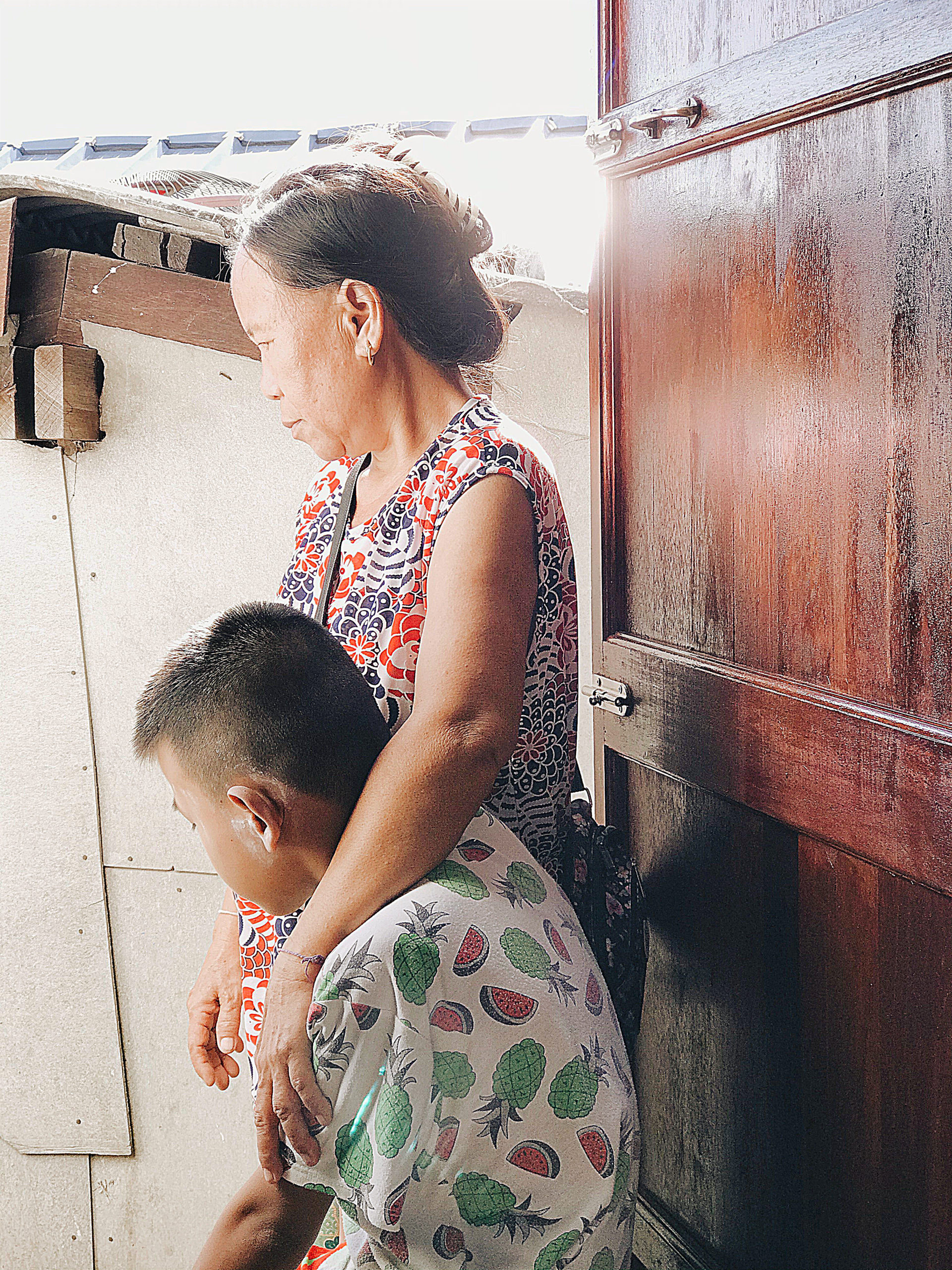Tags: Community Strengthening

COVID-19 brought increased strain on poor families around the world as they struggled with the secondary impacts of closed schools, shut down businesses, and more. Families who were already vulnerable have plunged into desperation. Fortunately, there are organizations who are responding to the growing need and sharing hope in the process.
Som is from a very poor tribe in Northern Thailand. When she was a young girl, only 13 years old, her parents sent her to the city to make money to support the family. But Som was tricked by her new employer, as happens often to vulnerable populations in Thailand. She was told she would work as a waitress, but was actually forced to work as a prostitute in an urban brothel. Som was trapped there as a sex slave for two years before she was able to escape the brothel and find safety and freedom. She then settled in the only home she could find – a room in Bangkok’s biggest slum.
Som worked hard to make a life for herself, build a family, and stand on her own two feet. But it wasn’t easy. Trauma, poverty, domestic violence, and instability continued to plague her home. Som was married, had a child, and then took in her nephew while his mother was in jail.
2020 was a difficult year around the globe, but for families like Som’s who were already vulnerable, it was devastating. Many families in the slums lost jobs, income, and financial stability. Som struggled to provide for the children in her home with the little money she could make collecting trash and selling flower wreaths Buddhists buy to earn merit at the temple. When the schools sent children home to curb the spread of the virus, she did her best to protect her children from the dangers of drugs, gangs, and violence in the slum, but struggled to make enough money while looking after them during the day.
Around the world, these are the types of situations that can lead to a mother making the impossible choice to place her children in an orphanage. Some orphanages in Thailand and around the world will even convince struggling mothers that their children would be better off in an institution.
Fortunately, Som’s story took a different turn, when a neighbor told her about Step Ahead – a nonprofit that works to help strengthen families in the slum.
Step Ahead strengthens the capacity of vulnerable adults so they can raise their own children. They believe in keeping families together. Keeping Families Together (KFT) is Step Ahead’s 18-month long program designed to give families the basic tools they need to succeed in sustaining a safe and nurturing home for their children. This program exemplifies the best practices of family strengthening and preservation by providing capacity building workshops for care givers on building a strong family, weekly home visits where coaching and follow up takes place with the family, goal setting and planning with the family so they gain ownership of the changes they’re making in their home, and financial literacy training alongside an income-generation grant for combatting the family’s poverty. Since 2002, Step Ahead has served over 1,200 families in Som’s community with microfinance services and those that participated in the KFT program reported feeling “extremely confident” in their ability to keep their family together after completion.
In the midst of the challenges of 2020, Som joined the KFT program and received relief from Step Ahead and other organizations in the form of goods, dried food, etc. This support helped her stay on her feet through the economic fallout of the COVID shut downs.
One day, Som’s house was broken into and she was robbed. The invader had broken her door and Som didn’t have the funds to fix it. Without being able to properly lock up her home, suddenly her life was not only unstable, she was not safe. She shared her fears with the KFT social worker and volunteers from one of Step Ahead’s church partners, who were visiting her regularly. The church volunteers decided to help Som by purchasing a new door and lock and installing it themselves — a simple fix that provided Som and her family the safety and security they otherwise wouldn’t have had.
Som witnessed the love and care of God through our KFT social worker and the local church volunteers. Through all of this, Som began to ask Step Ahead’s social worker and the church volunteers why they were so kind to her. They told her God loves us all so much it inspires them to share that love with others. Som became a Christian that day!
As we continue to see the impact of the COVID-19 pandemic on the world’s most vulnerable, Christians can support organizations like Step Ahead to come along side struggling families and display the love of Christ in word and deed.
Check out Faith to Action’s COVID-19 response webpage to see a list of dozens of Christian organizations ensuring children are supported in safe and loving families during the pandemic.

This publication was made possible through the generous support of the American people through the U.S. Agency for International Development under Partnerships Plus cooperative agreement number 7200AA18CA00032, funded September 28, 2018, and implemented by JSI Research & Training Institute, Inc. The contents are the responsibility of the Faith to Action Initiative a project of Tides and do not necessarily reflect the views of USAID or the United States Government.
